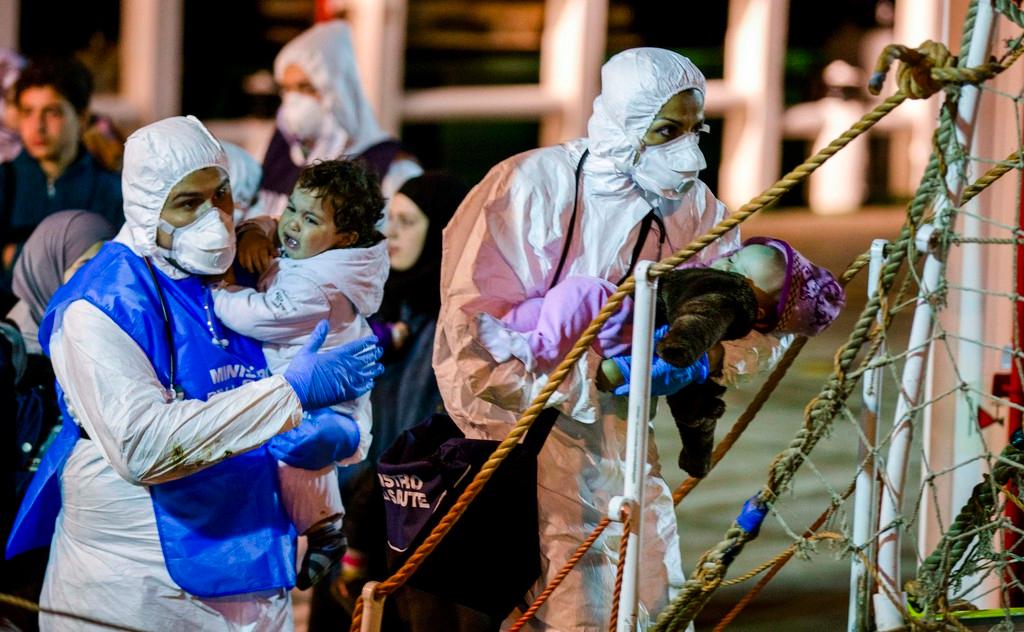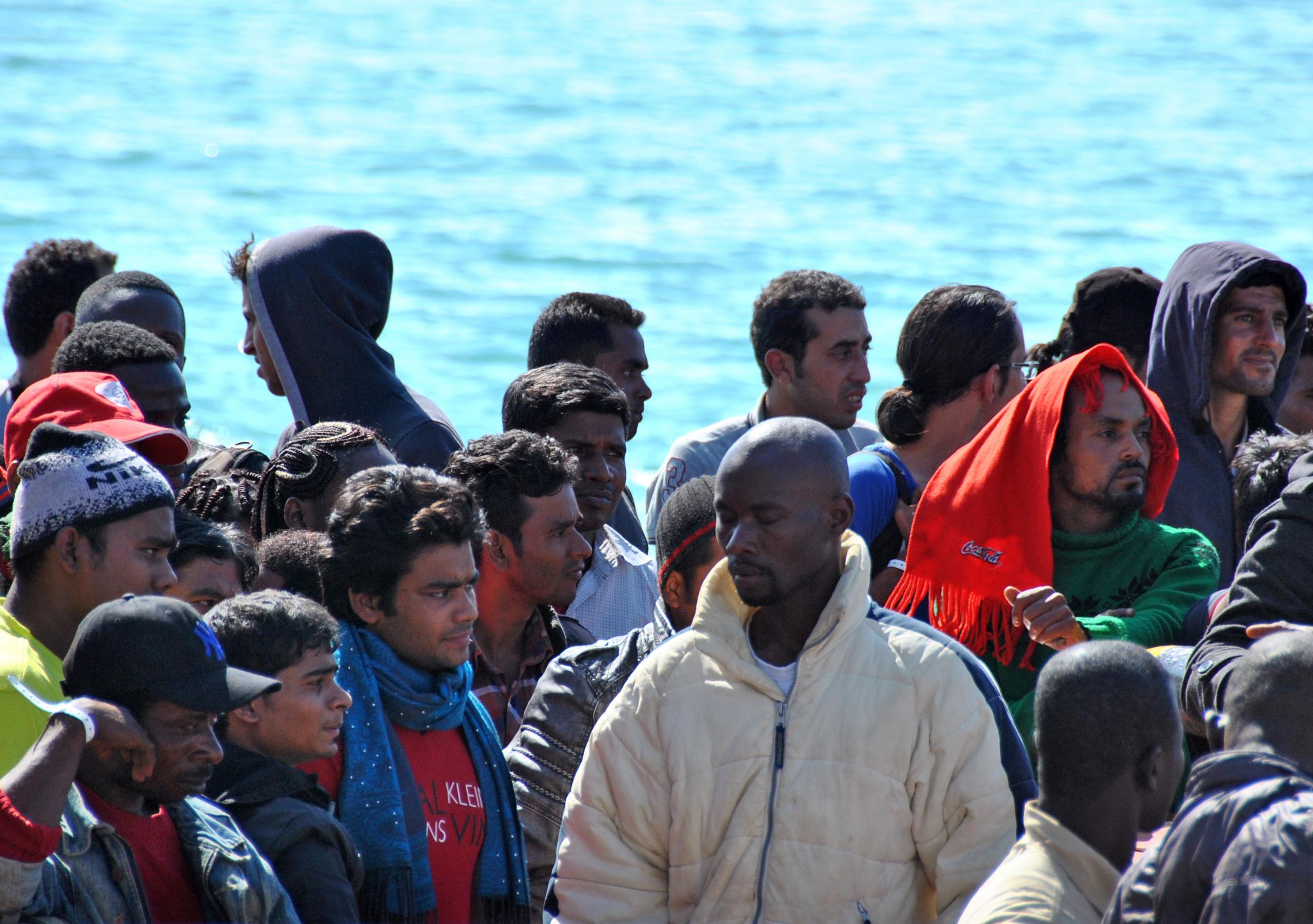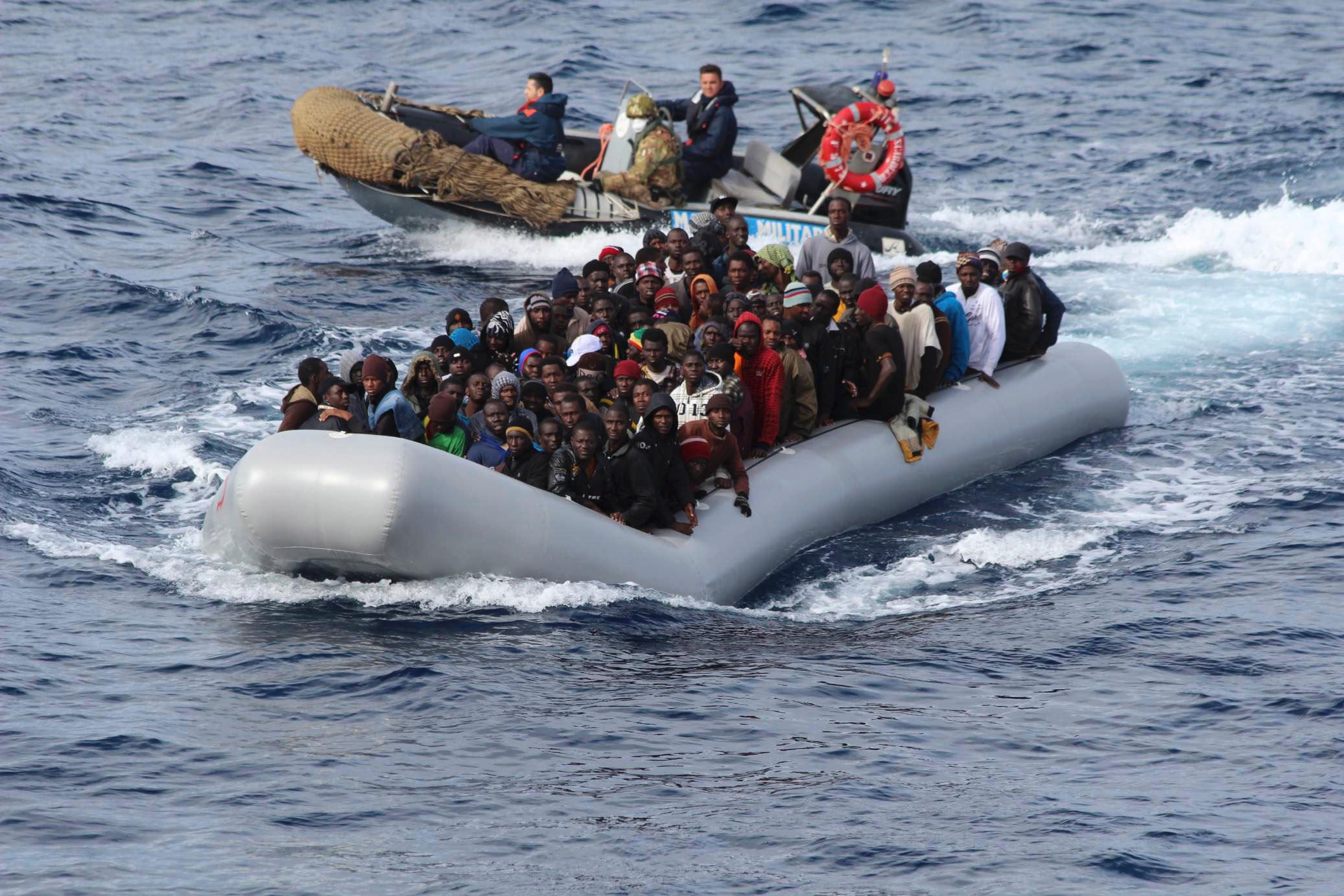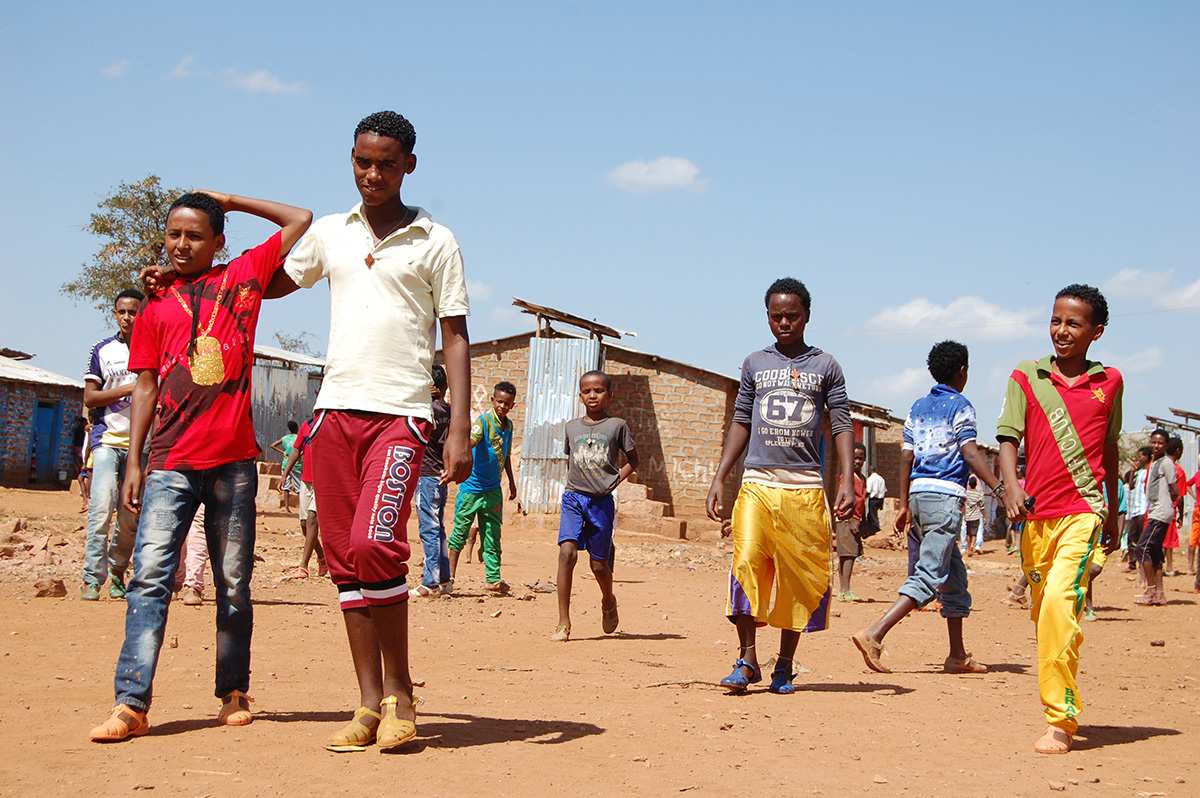‘Faced with boat disasters, Europe must act’

The weekend’s refugee disaster off the coast of Libya has prompted indignation in Switzerland, with one politician saying the situation in the Mediterranean hasn’t been this bad “since the Second World War”. Newspapers aren’t optimistic that much is going to change.
“It’s not enough to get outraged” was the headline of the editorial in the Tages-Anzeiger in Zurich.
“’Never again’, swore Europe’s politicians in front of the coffins of almost 400 drowned refugees. That was 18 months ago, after the previously greatest tragedy off the Italian island of LampedusaExternal link. ‘Never again’ will now be heard again, after the situation off the Libyan coast becomes clear.”
Overnight on Sunday, a smuggler’s boat reportedly crammed with almost 1,000 people overturned off Libya’s coast as rescuers approached, causing what could be the Mediterranean’s deadliest known migrant tragedy and intensifying pressure on the European Union to meet demands for decisive action.
Italian prosecutors said a Bangladeshi survivor flown to Sicily for treatment told them 950 people were aboard, including hundreds who had been locked in the hold by smugglers. Earlier, authorities said a survivor told them 700 migrants were on board.
“It’s the time of outrage and accusations – but it’s not enough to be outraged and point fingers,” the Tages-Anzeiger wrote.
“It would be more important to discuss options honestly. There is only one possibility of immediately stopping deaths in the Mediterranean. EU countries (and Switzerland) must set up ferry services or airlifts to neighbouring countries. These are transit stations for refugees from Syria or southern Africa – hundreds of thousands, millions of people fleeing war and misery at home.”
‘Open the gates of Europe’
The Tages-Anzeiger said there was also a solution to stopping these dramas once and for all: “whoever wants to do this must open wide the gates to fortress Europe – and provide safe means of transport. The human traffickers would go out of business overnight. A majority of refugees in Europe’s unstable neighbours would stream into EU countries, which would need to agree on an allocation formula.”
It admitted, however, that this would be “entirely unrealistic”. “The result would be a mass migration – and in Europe a popular uprising would be guaranteed.”
“The EU states should therefore agree to remind more firmly the countries of origin and transit countries of their duties. In Libya, for example, there is currently hardly any state infrastructure. The EU must work harder at getting the message across that rival groups and militias must agree on a government,” it said.
“All realistic options in the discussion can basically only help stem or alleviate the misery. That is the honest answer to the loud accusations and outrage after the refugee drama.”
Time for action
In French-speaking Switzerland, the Vaud newspaper 24Heures pointed to experts who warned that the refugee “season” was only just beginning – “the numbers of victims are already beyond those recorded when operation Mare Nostrum was still in force.”
Malta and Italy are closest to the Libyan coast, and have received the brunt of a migrant tide that carried 219,000 people from Africa to Europe last year. Some 3,500 died or went missing along the way, according to the UN High Commissioner for Refugees, António Guterres, on Sunday.
“What can Europe do, faced with this influx fed by the violence of wars in Africa and the Middle East?” the paper asked.
“There is a one-word answer: act. Return to a policy of rescue – and not only of monitoring – in this sea into which thousands of individuals have thrown themselves: men, women and children, sometimes very young, desperate runaways exploited by smugglers.”
“These [smugglers] work without restrictions since the collapse of Libya – after the plague of Gaddafi, the cholera of rival factions…”
24Heures said Europe should “stop talking and get down to action, setting up a concerted plan with all of its allies, including Switzerland. It must organise the logistical and financial management of a reality which cannot be ignored”.
Political reaction
Swiss politicians were also shocked. Andy Tschümperlin from the leftwing Social Democratic Party said the refugee situation in the Mediterranean “was last this bad during the Second World War”.
The refugees’ desperation must be “unbelievably great” if they are prepared to take these risks, he added, calling for Switzerland to host an international crisis conference in Geneva, which would include assistance for Italy.
Ruth Humbel from the centre-right Christian Democratic Party agreed. “The current situation shows that stopping Mare Nostrum has not prevented refugees from undertaking these crossings,” she said.
Heinz Brand from the conservative right Swiss People’s Party warned of making people smuggling more attractive.
“It can’t be that we build up the readiness to accept another influx,” he said. Brand wanted to see camps erected in states bordering crisis countries, for example in Sudan for Eritreans or in Lebanon for Syrians.
24Heures concluded that it was legitimate to combat clandestine immigration, “but to maintain the current plan, Triton, cheaper because it lacks proper means, would boil down to accepting that such tragedies will carry on for ever”.
International reaction
“How can it be that daily we are witnessing a tragedy?” asked Italian Prime Minister Matteo Renzi ahead of Monday’s European Union meeting in Luxembourg, where foreign ministers scrambled to add stopping the smugglers to their agenda.
With Sunday’s tragedy, demands for decisive action were going mainstream, as authorities from France, Spain, Germany and Britain joined calls for a unified response.
“Europe can do more and Europe must do more,” said Martin Schulz, president of the European Parliament. “It is a shame and a confession of failure how many countries run away from responsibility and how little money we provide for rescue missions.”
Europe must mobilise “more ships, more overflights by aircraft,” French President François Hollande told French television on Sunday. “Words won’t do anymore,” Spain’s Prime Minister, Mariano Rajoy, told a political rally.
Renzi said he too wants action, but he rejected calls by some Italian lawmakers for a naval blockade. That would only “wind up helping the smugglers” since military ships would be there to rescue any migrants, and they wouldn’t be able to return passengers to chaos and violence in Libya.
UN Secretary-General Ban Ki-moon said the latest tragedy was an urgent reminder “of the critical need for a robust search-and-rescue capacity in the Mediterranean”, in a statement released late on Sunday by his spokesman. Ban said the Mediterranean had become “the world’s deadliest route used by asylum seekers and migrants”.
EU foreign policy chief Federica Mogherini, an Italian, said on Monday it was the European Union’s moral duty to tackle the migrant crisis in the Mediterranean and the bloc could call an emergency summit of leaders later this week.

In compliance with the JTI standards
More: SWI swissinfo.ch certified by the Journalism Trust Initiative













You can find an overview of ongoing debates with our journalists here . Please join us!
If you want to start a conversation about a topic raised in this article or want to report factual errors, email us at english@swissinfo.ch.